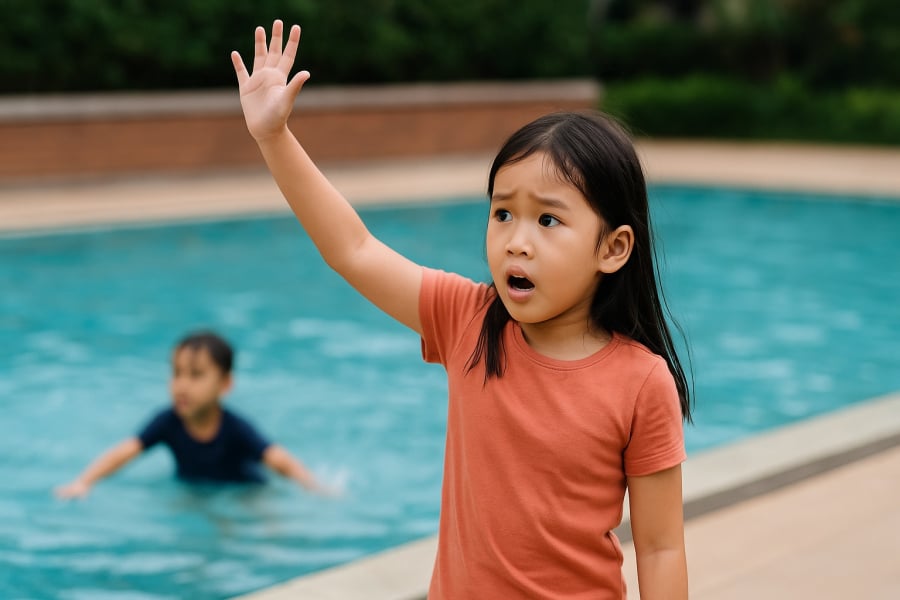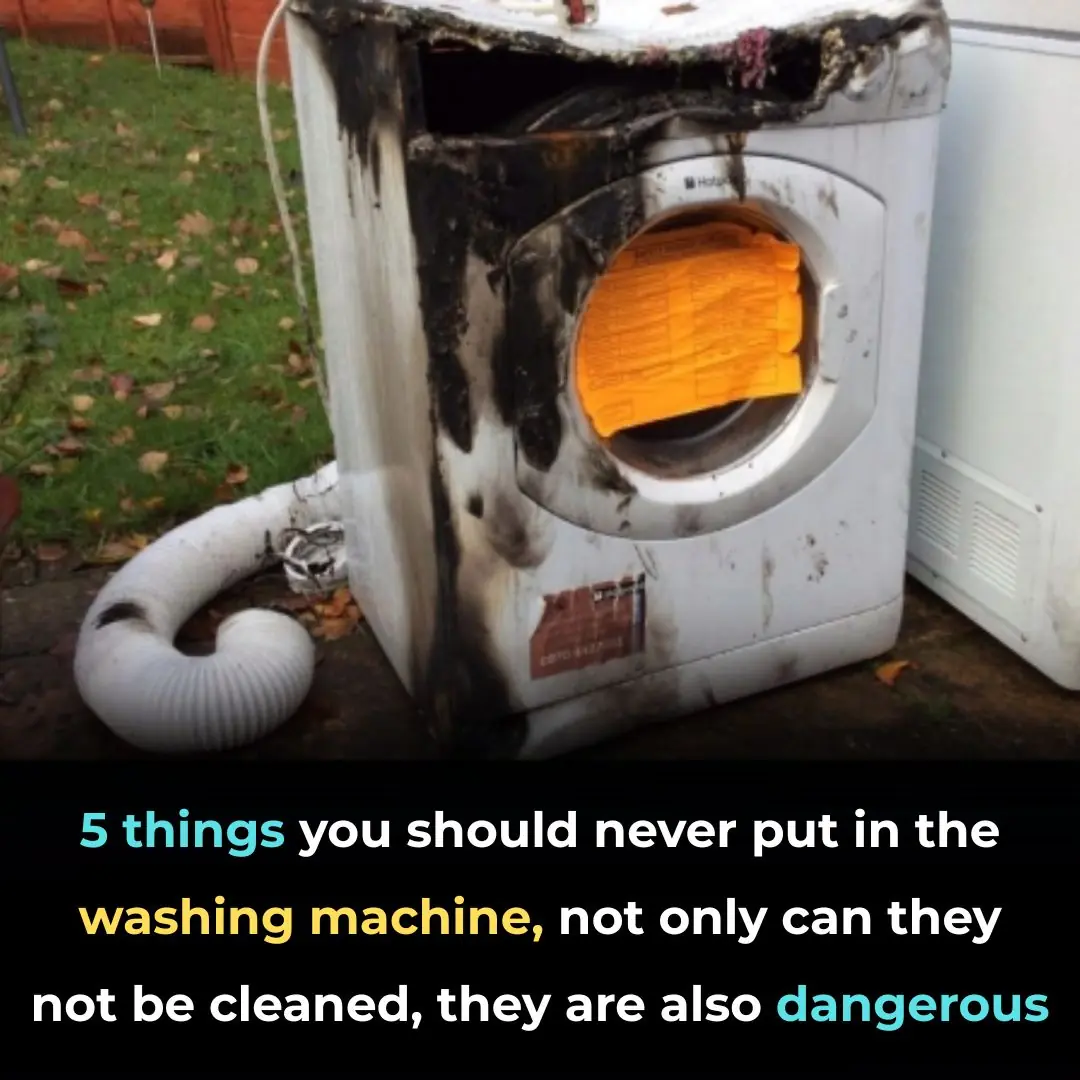
5 life skills children need to learn early to protect themselves and save others

Life-saving reflexes sometimes don't lie in strength, but in alertness and skill. For young children, being taught early on how to handle dangerous situations not only helps them save themselves but also protects others in critical moments.
Essential Life Skills Children Must Learn Early
Even from a young age, children can learn and remember important skills if they are guided properly. Below are 5 basic yet incredibly important life skills that parents should teach their children as early as possible.
Recognizing Dangerous Situations
Children are often very innocent, which makes it hard for them to distinguish dangerous situations. Teaching them to recognize signs of danger is essential so they can react promptly instead of being scared or frozen.
For example: If you are playing and suddenly sink underwater without resurfacing, or if you see an adult collapse and not move, or notice someone lying motionless on the street… all of these are signals that children must act immediately—but they shouldn't rush in if they can't handle the situation themselves.
Calling for Help the Right Way – Don’t Jump In
A skill that may seem simple but is a "key" to survival in many situations: knowing how to call for help correctly. Children need to learn how to shout loudly to grab attention and run to find the nearest adult, rather than attempting to save a friend or someone in distress.
A simple rule to remember is: "Call an adult – Don’t jump in – Stand still and shout loudly!" This "magic phrase" should be repeated regularly in simulated situations so children can memorize it and respond quickly when facing a real emergency.
Using Supportive Objects Instead of Taking Risks
Many children, because they care for their friends, risk jumping into the water to save them, even if they can't swim. This is extremely dangerous. What parents need to teach is: in an emergency, use supportive objects—like a long stick, rope, plastic buoy, or any floating object within reach—to pull the victim to safety, instead of risking one’s own life.
This action is not only safer but also teaches children to think logically, respond intelligently, and stay calm in emergency situations, rather than reacting emotionally.
Communicating in Stressful Situations
When encountering someone in distress, a few gentle words can help them keep calm while waiting for help. Children should be taught that words can have great power, especially in seemingly hopeless moments.
Teach your child to say things like: "Hang in there, help is on the way!", "I’m going to call an adult, don’t be scared!" – these phrases not only help the victim feel less panicked but also help the child remain calm and less anxious when facing abnormal situations.
Practice Regularly as a Habit
Children learn best through repetition and play. These skills should be incorporated into role-playing games or simple simulated situations at home or school. Once children are familiar with the response steps, they won’t panic but will know how to stay calm, call for help, and find safe solutions.
What Can Parents Do to Help Children Learn Life Skills?
You don't have to wait until your child is older; as soon as they begin to understand (around 3-4 years old), parents can start teaching these skills in a gentle and familiar way.
Incorporate Skills into Play
Parents can play the role of "someone in distress" and let the child practice reactions: calling an adult, giving a floating object, shouting loudly… This approach helps children learn without pressure and adds fun to the experience.
Repeat Frequently
Reinforce the skill in a fun and familiar way: "Do you remember? If you see a friend sinking underwater, what do you do first?" This simple question helps the child memorize the golden rule.
Avoid Threatening or Creating Fear
Teaching life skills should not come with threats ("If you don’t learn, you’ll drown!"), as it will make the child fearful rather than understanding the real importance and value of the skill.
Be a Role Model for Your Child
In small situations, like seeing someone fall on the street, parents should act correctly: stop, check on them, and call for help. The child will see this and learn how to behave properly through the example set by their parents.
Watch Educational Videos Together
Today, there are many animated videos or short clips that teach life skills for children. Parents can watch these with their children, then ask questions and discuss gently to reinforce the knowledge.
Life skills don’t come from textbooks or expensive classes but begin with the small things parents teach their children every day. Just spending a little time and creating simple habits can give your child the priceless gift of being able to protect themselves and help others when truly needed.
News in the same category


The method to drive away an entire rat colony using just a handful of rice, without the need for harmful poisons.

Clean your house with this simple trick using water, and the house will be as clean as new, with no dust sticking, even if you don't clean it for a whole week.

Tips to clean rust from gas stoves with rice water and cooking oil, seems like a joke but the effect is surprising, the stove is sparkling clean

5 things you should never put in the washing machine, not only can they not be cleaned, they are also dangerous

The small round hole at the end of the nail clipper is useful

Mix toothpaste with rice water: Great use, solves problems both men and women encounter

Eating green bananas this way is very good for your health

Unexpectedly reduce electricity bill with the trick of putting tissue paper in the refrigerator - Anyone can do it

This type of powder is often found in the kitchen. Just sprinkle a little on ornamental plants, the buds will be dense, and the flowers will fill the garden

3 mistakes when using plastic wrap that can cause cancer that many people make

Pillow Inserts Turning Yellow with Tiny Mold Spots? Washing with Soap Doesn’t Work? Soak with This to Get Them Spotlessly Clean

Soaking Pineapple with This Ingredient Makes It Sweeter and Prevents Tongue Irritation

5 Breakfast Foods That Boost Liver and Kidney Function: Delicious, Nutritious, Affordable, and Easy to Make

Tips for growing ginger at home for big, plump roots that can be eaten all year round.

4 signs that expose lettuce "bathed" in pesticides, don't rush to buy it just because it's fresh and delicious

When buying noodles, look at this point to know which type is clean and which type is contaminated with chemicals.

9 out of 10 people eat avocado and throw it away without knowing it is a "treasure"

2 quick and easy ways to wash yellowed pillow inserts, making them instantly white and fresh like new
News Post

Save this valuable remedy that helps de:toxify and can save the life of someone bitten by a ra:bid d:og or snake in just 1 minute.

The method to drive away an entire rat colony using just a handful of rice, without the need for harmful poisons.

Clean your house with this simple trick using water, and the house will be as clean as new, with no dust sticking, even if you don't clean it for a whole week.

Simple Homemade Cough Syrup Removes Phlegm From The Lungs

Eat this #1 meal to help unclog your arteries naturally

Canker Sores Are The Absolute WO:RST…Here’s How To Get Rid of Them Fast!

Mimosa Pudica Tea: How to Prepare and Health Benefits

7 Benefits and Uses of Ageratum conyzoides

Tips to clean rust from gas stoves with rice water and cooking oil, seems like a joke but the effect is surprising, the stove is sparkling clean

5 things you should never put in the washing machine, not only can they not be cleaned, they are also dangerous

The small round hole at the end of the nail clipper is useful

Mix toothpaste with rice water: Great use, solves problems both men and women encounter

Eating green bananas this way is very good for your health

Unexpectedly reduce electricity bill with the trick of putting tissue paper in the refrigerator - Anyone can do it

10 Shades of Japanese Whitening Secrets: Rice-Based Beauty Formula for Wrinkle-Free, Spotless Skin

This type of powder is often found in the kitchen. Just sprinkle a little on ornamental plants, the buds will be dense, and the flowers will fill the garden

Don’t Boil Eggs Directly In Water — Here’s How FIVE-STAR Hotels Cook Their Eggs!

When someone in the family passes away, you should know that you should not keep these 4 relics for your children and grandchildren.

3 mistakes when using plastic wrap that can cause cancer that many people make
